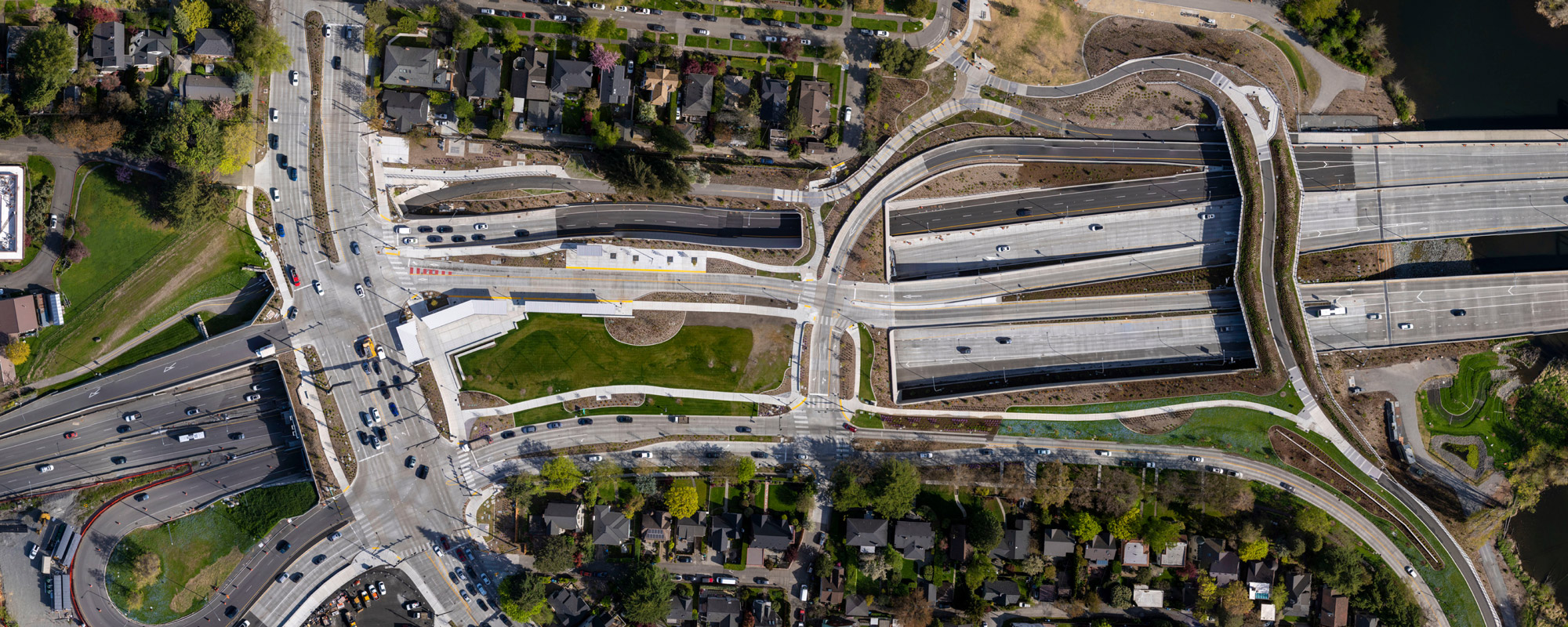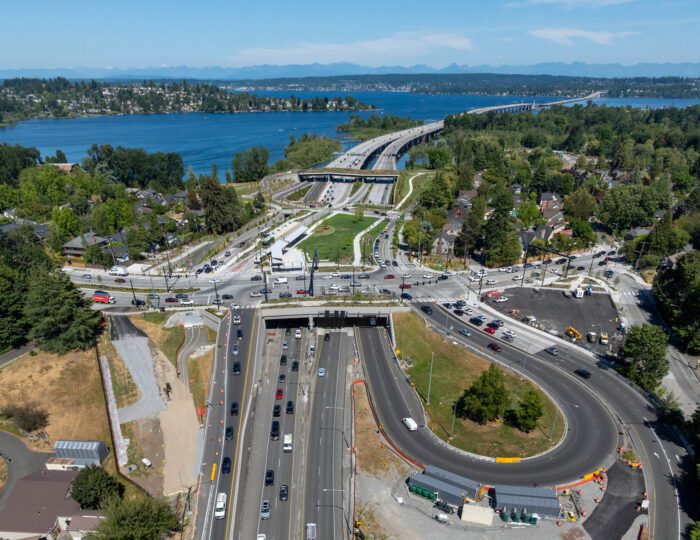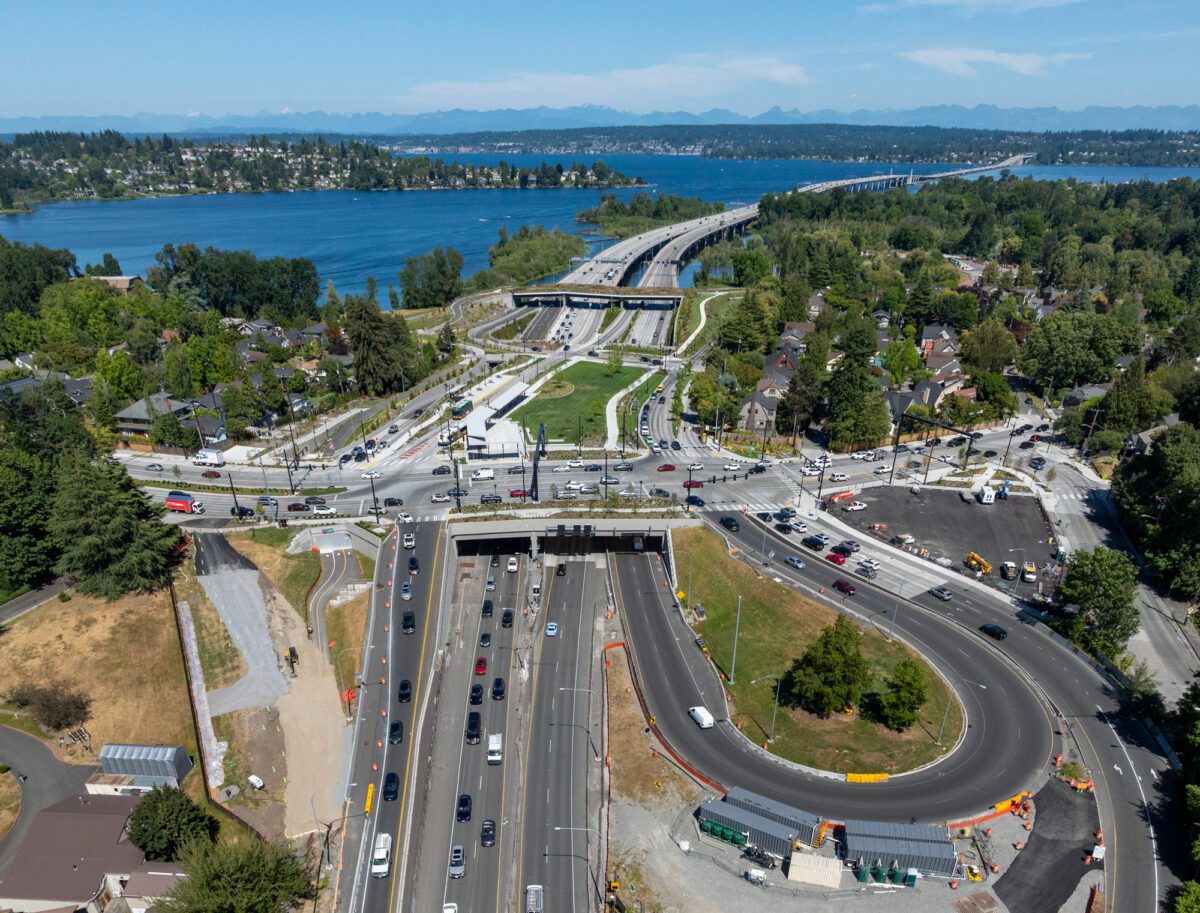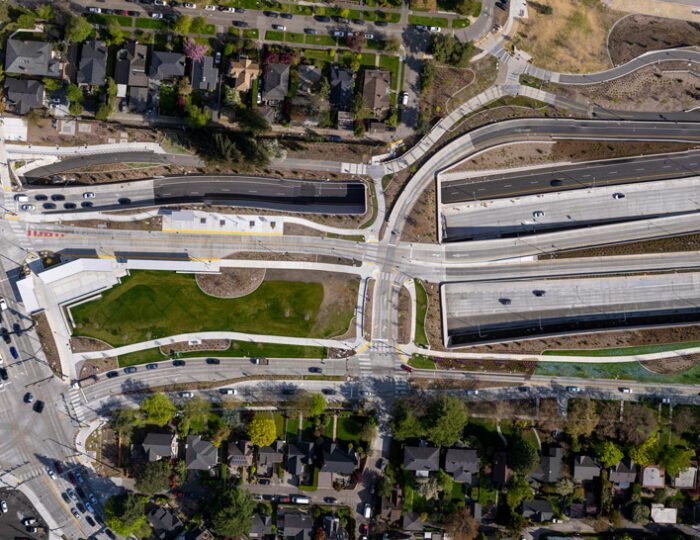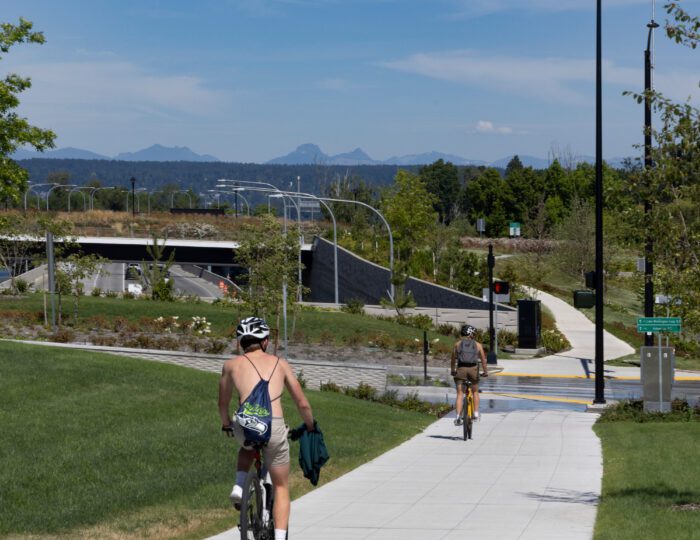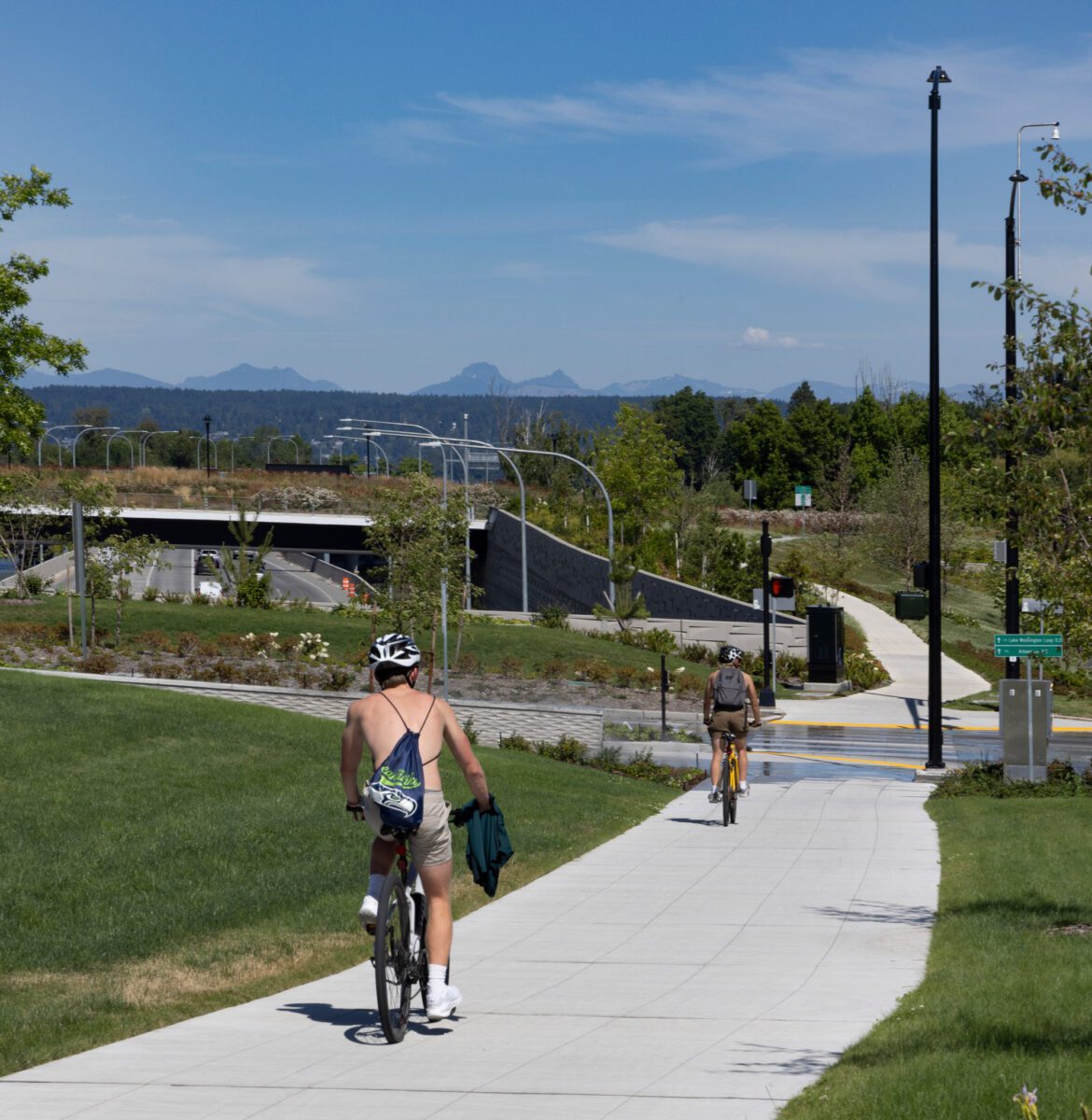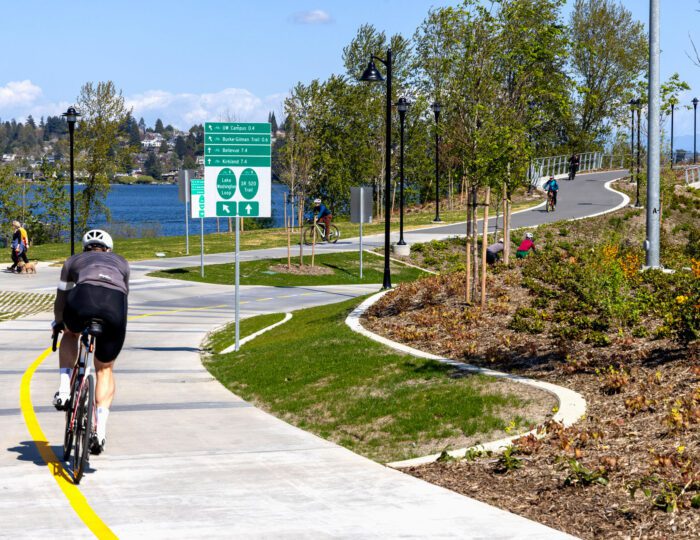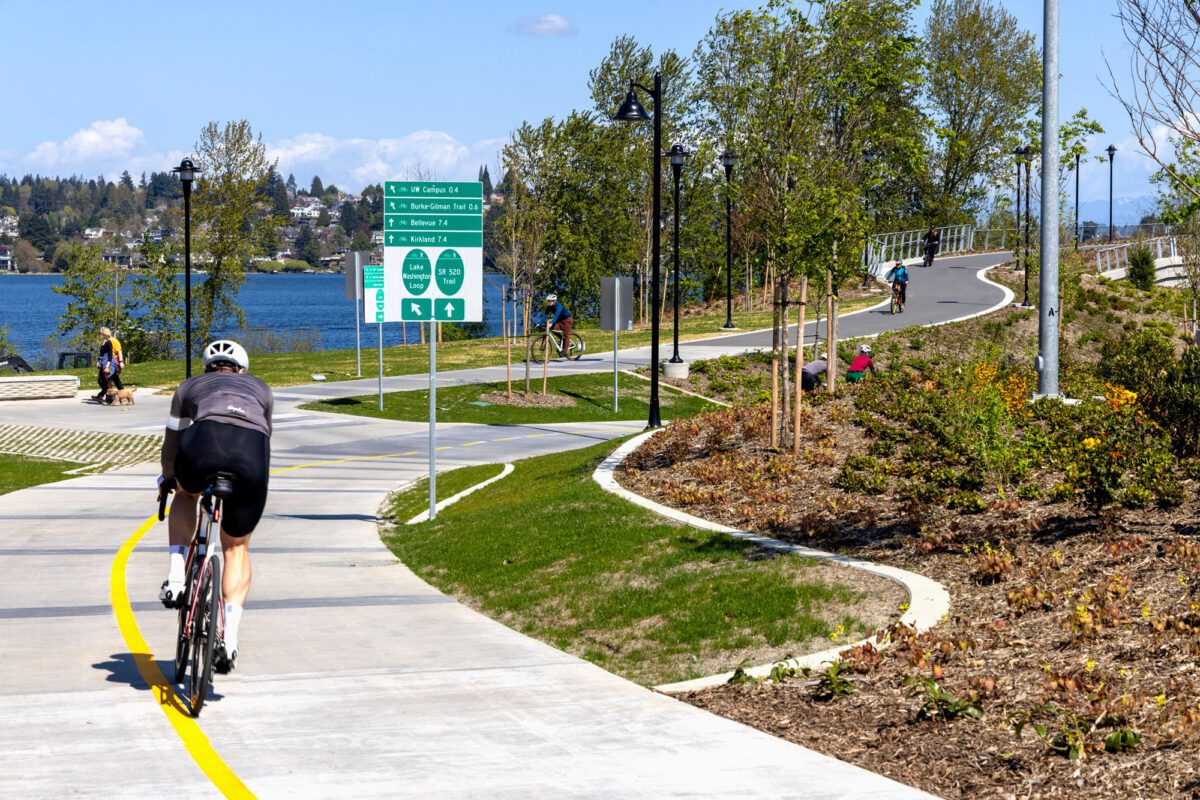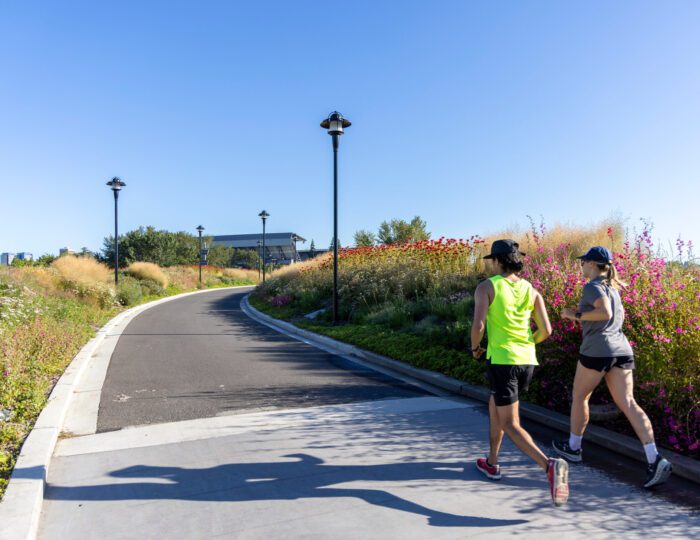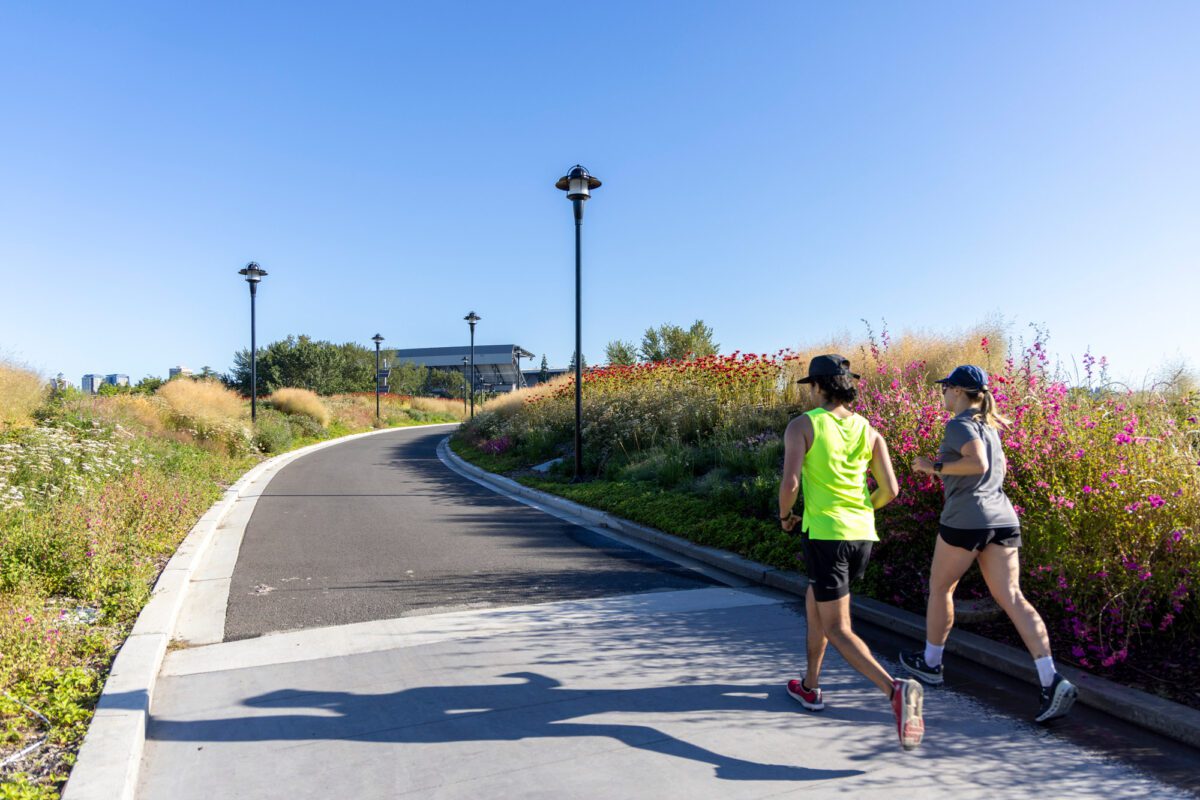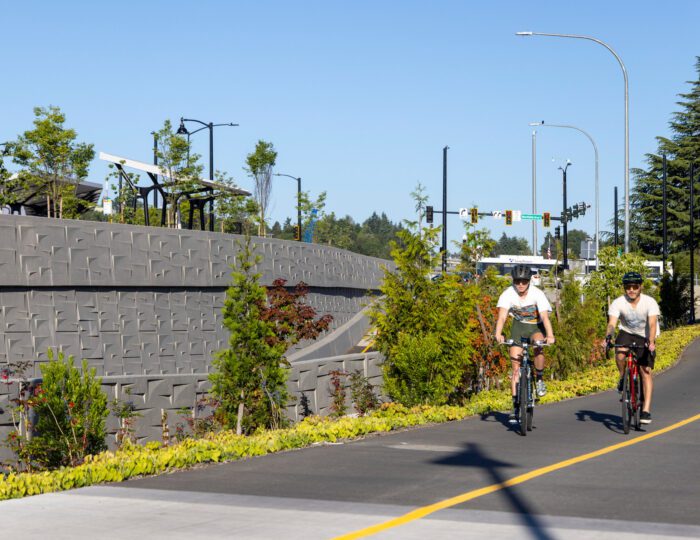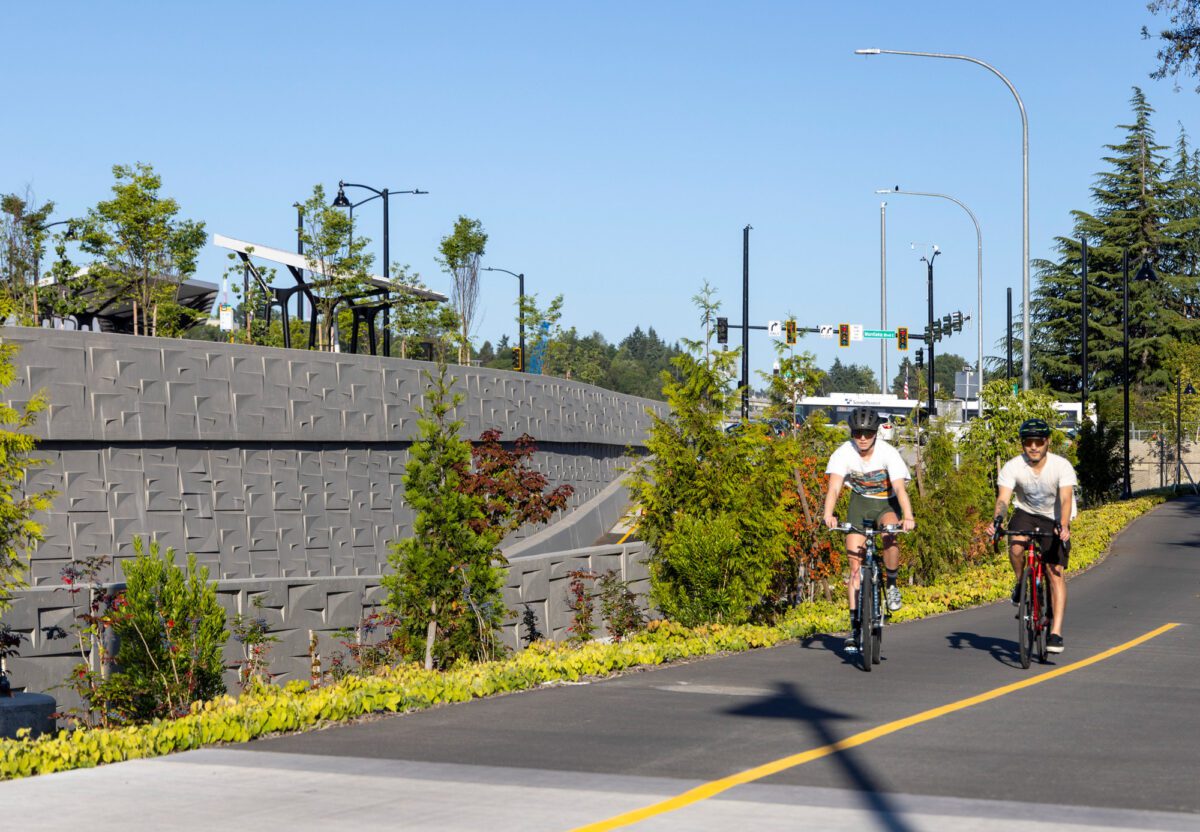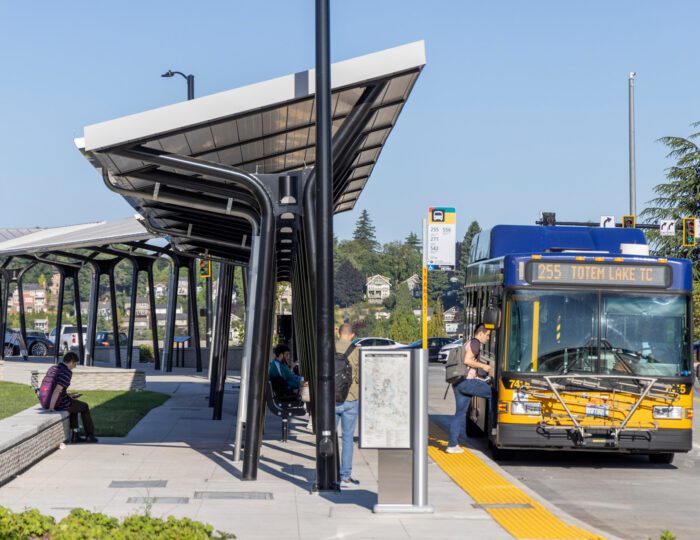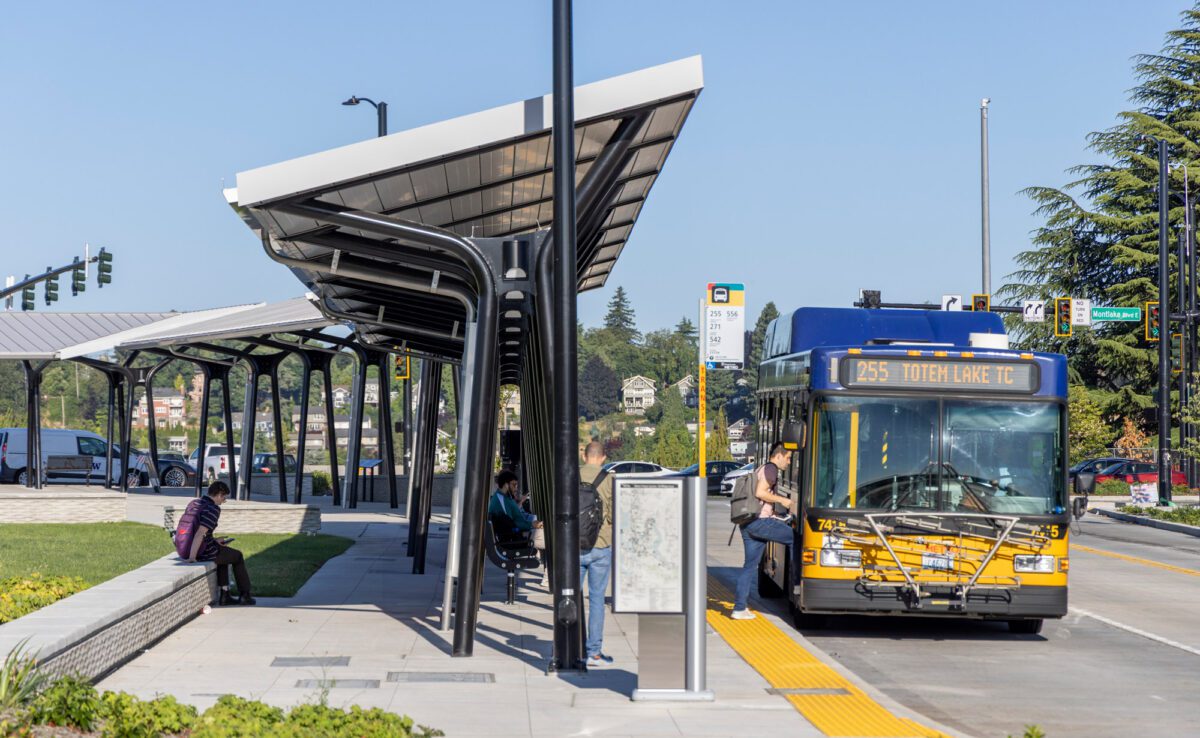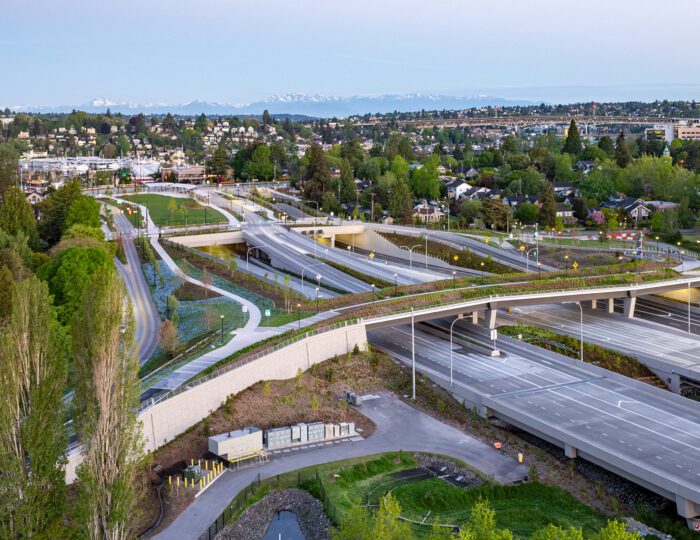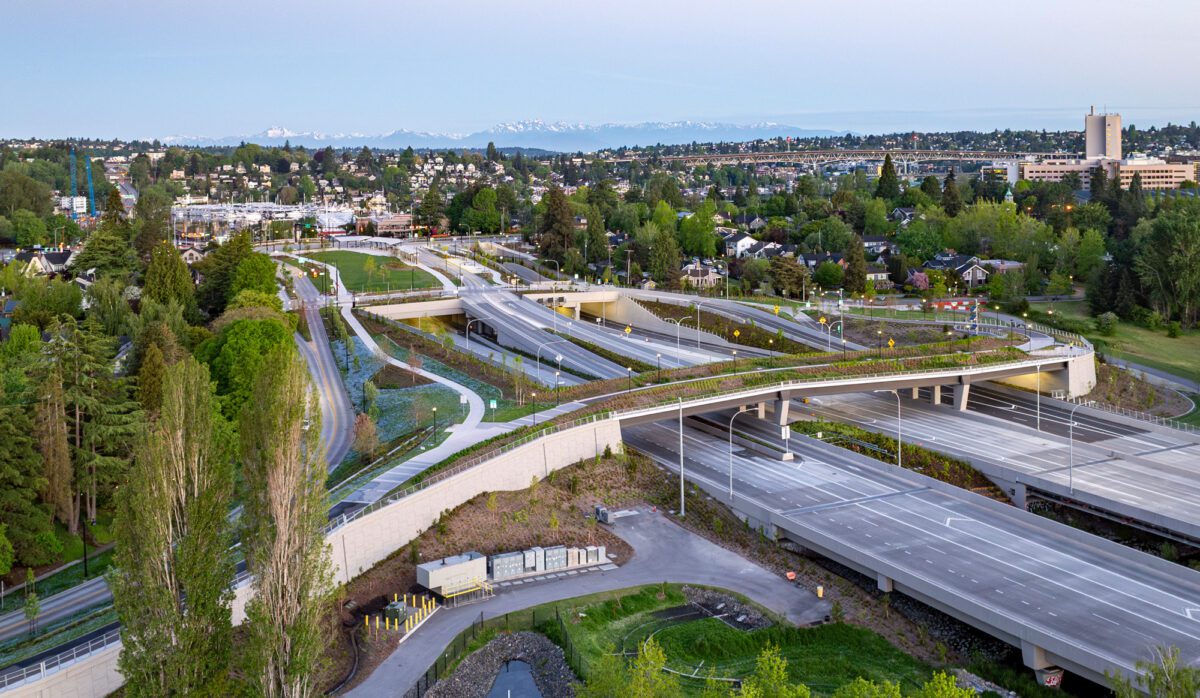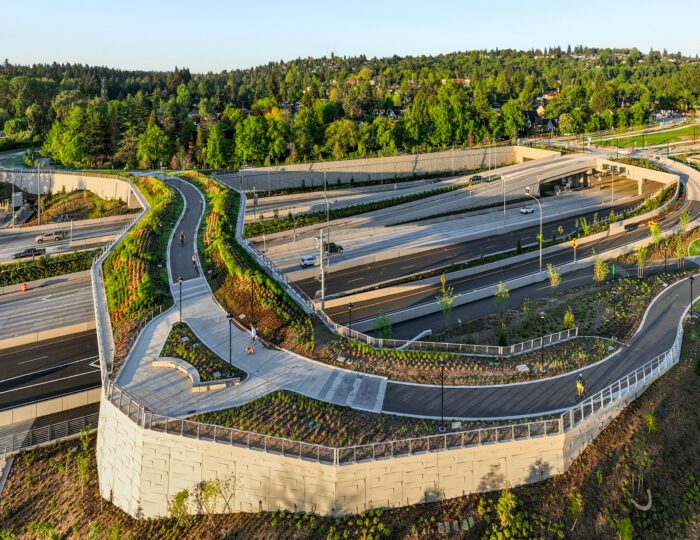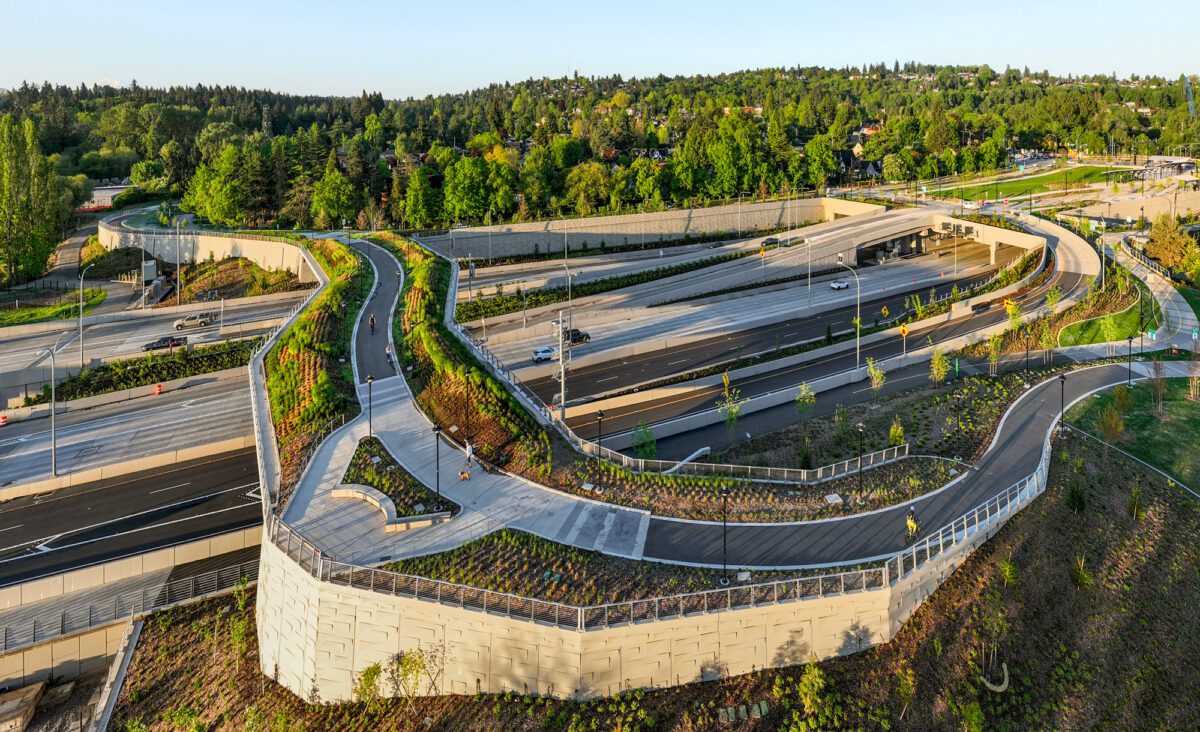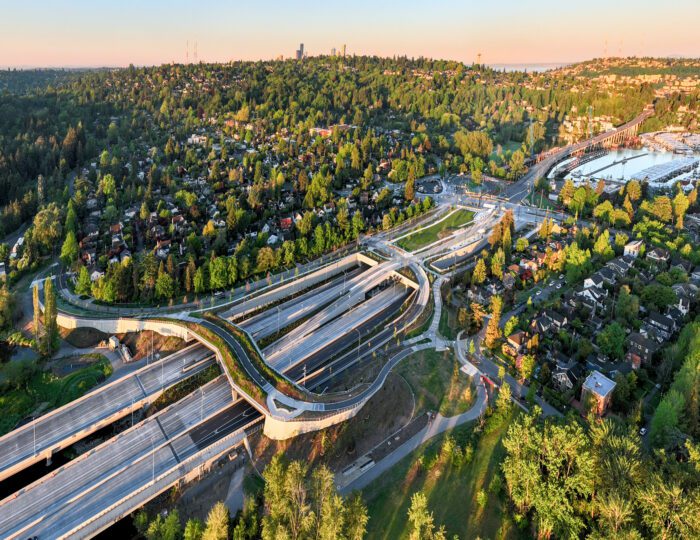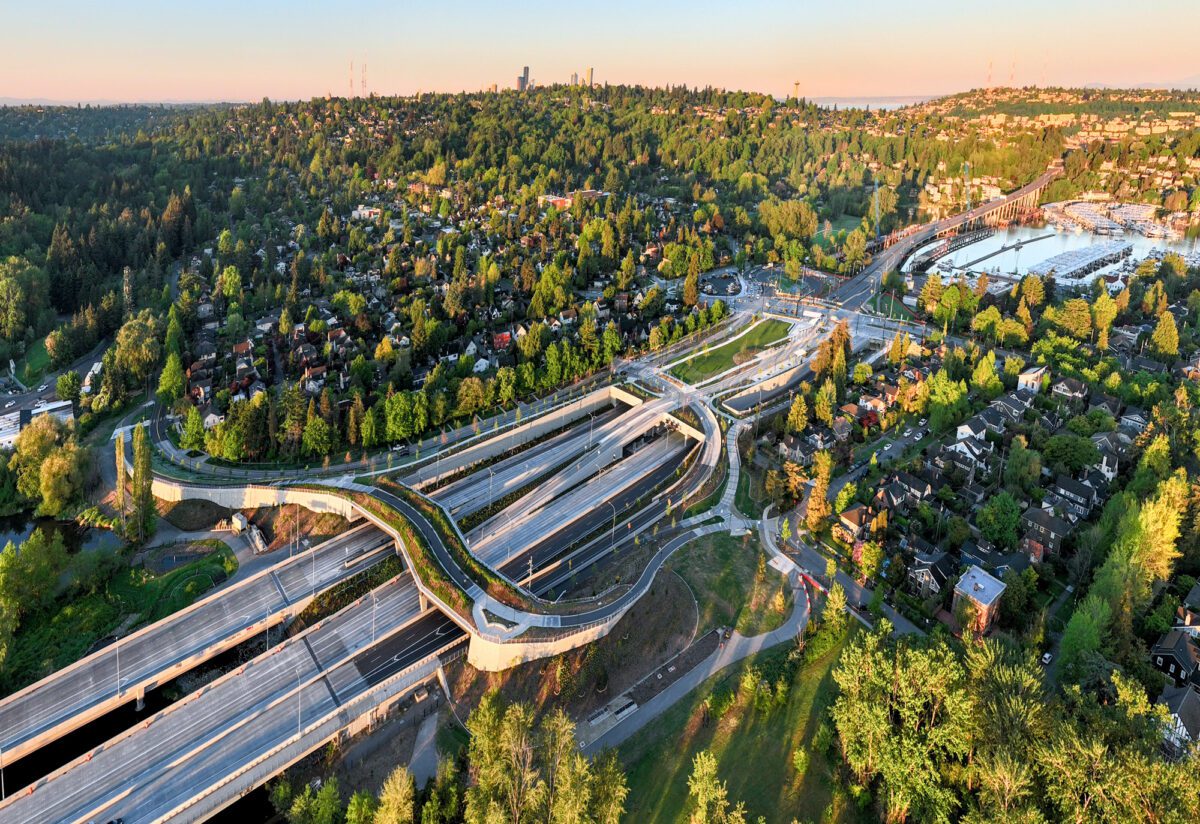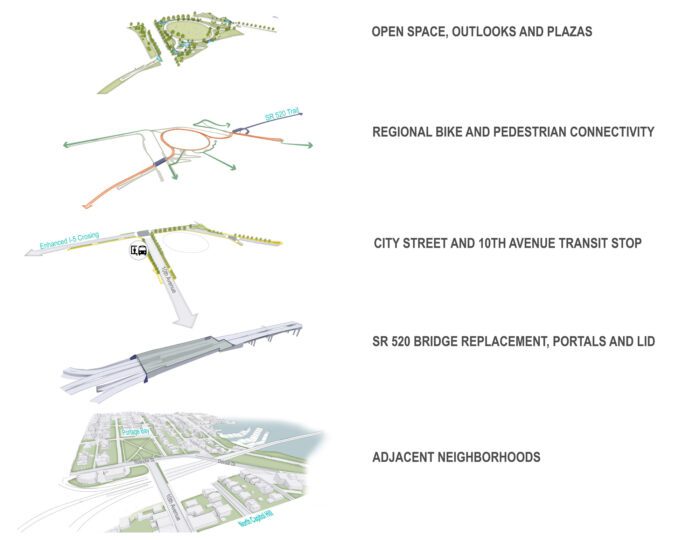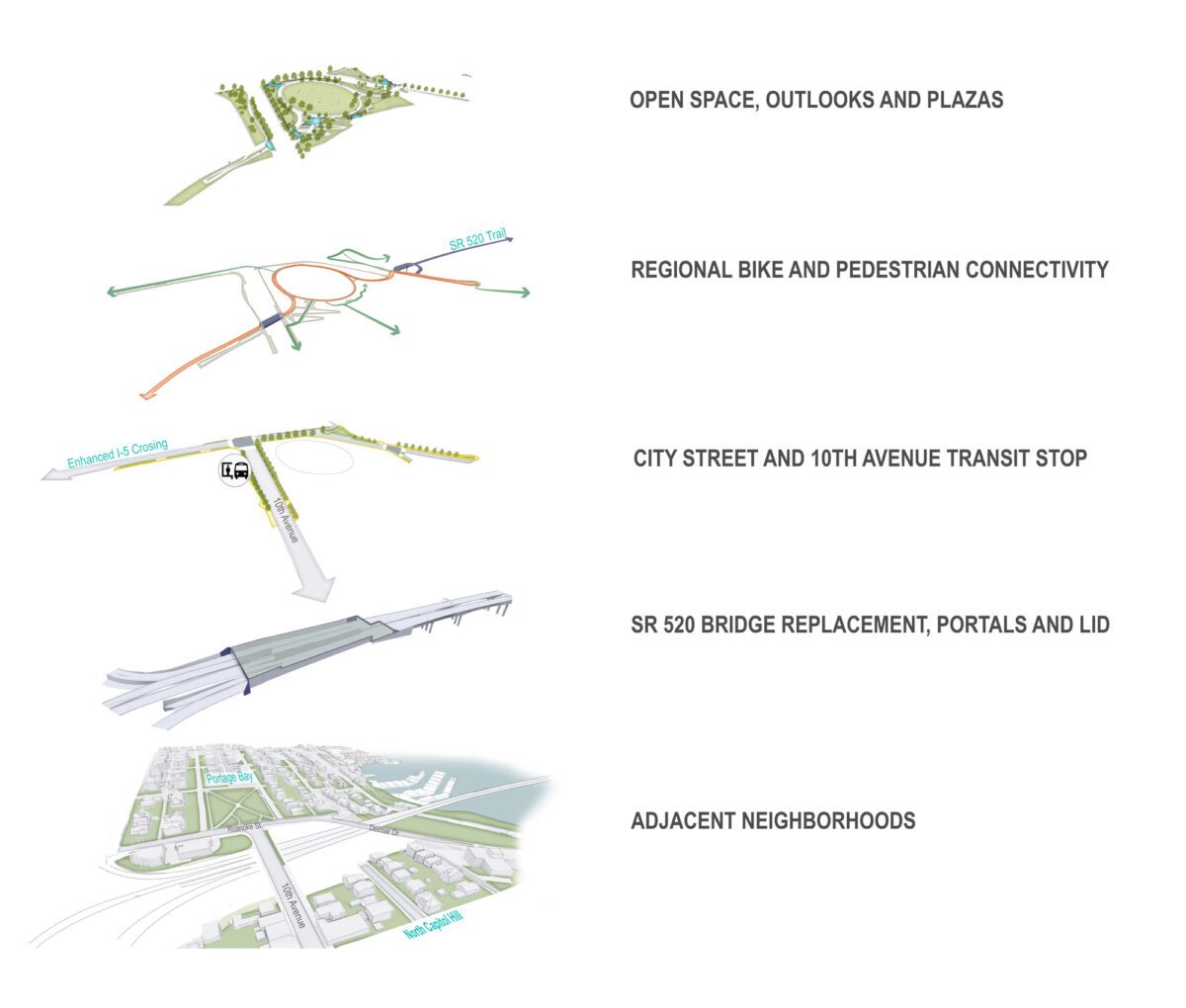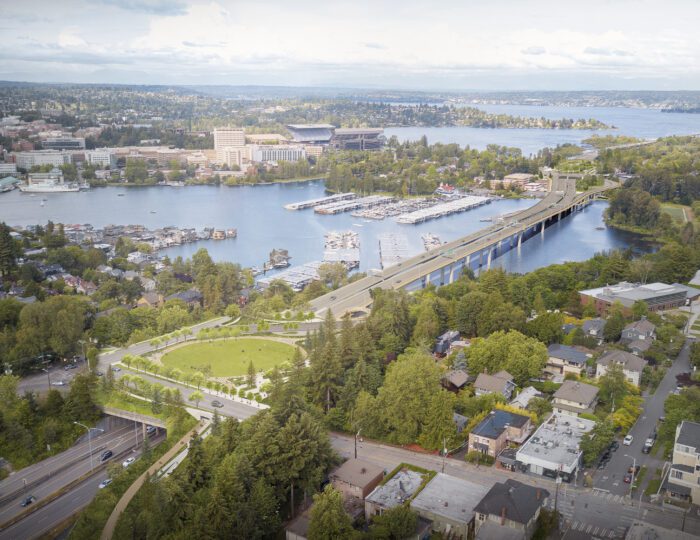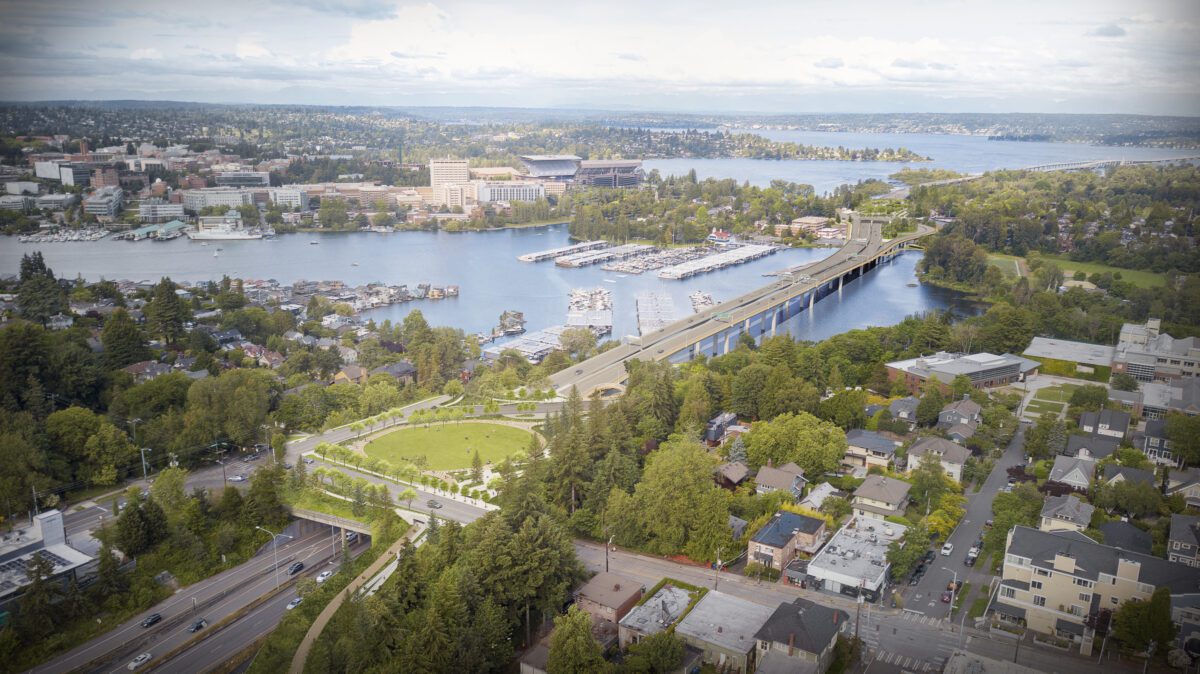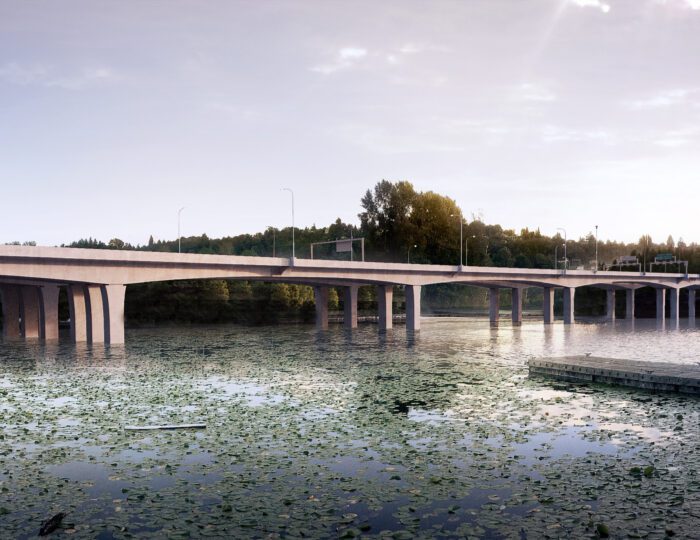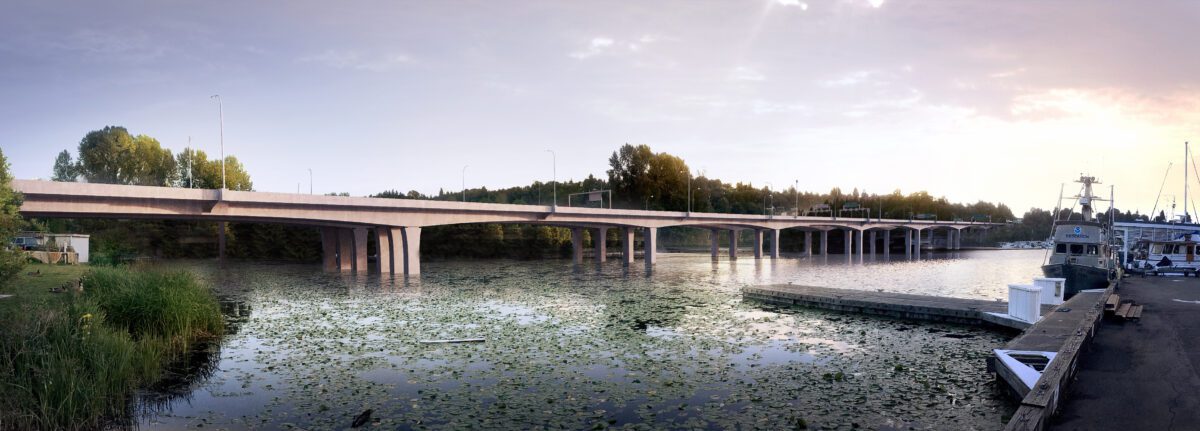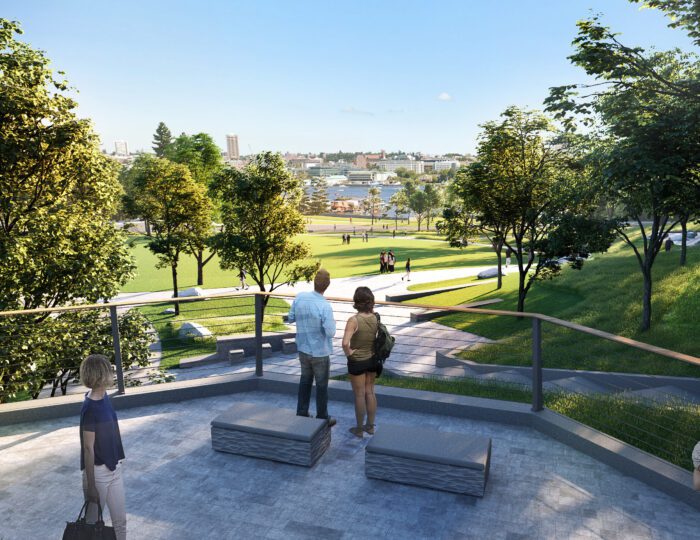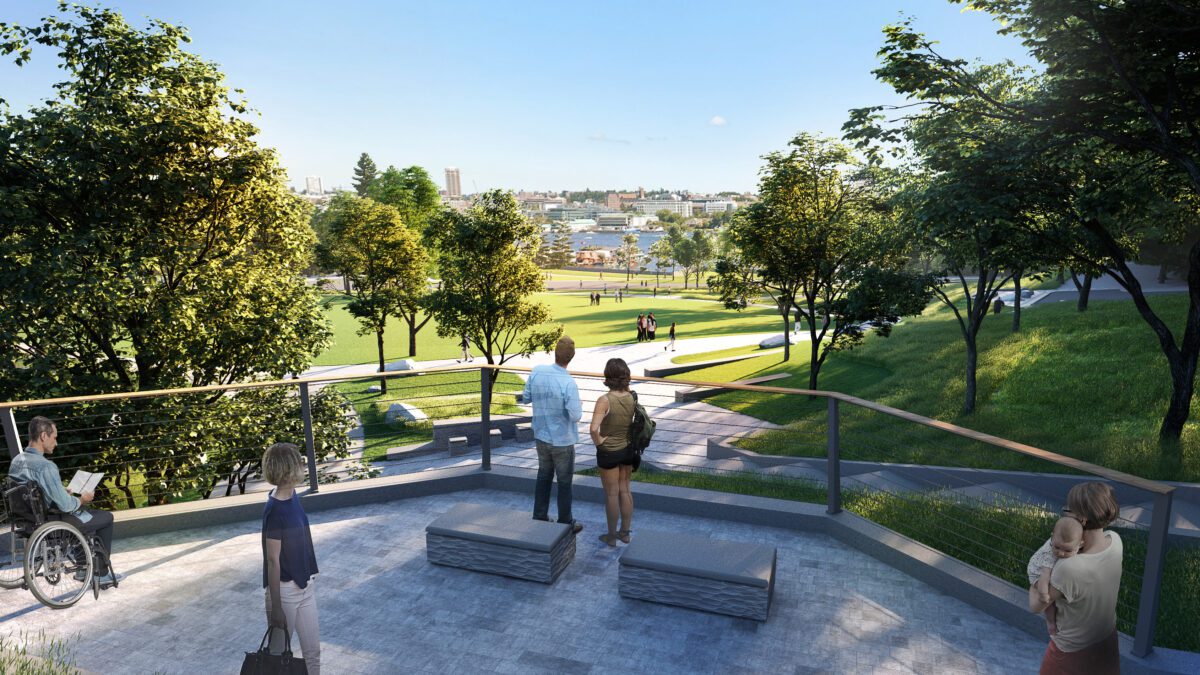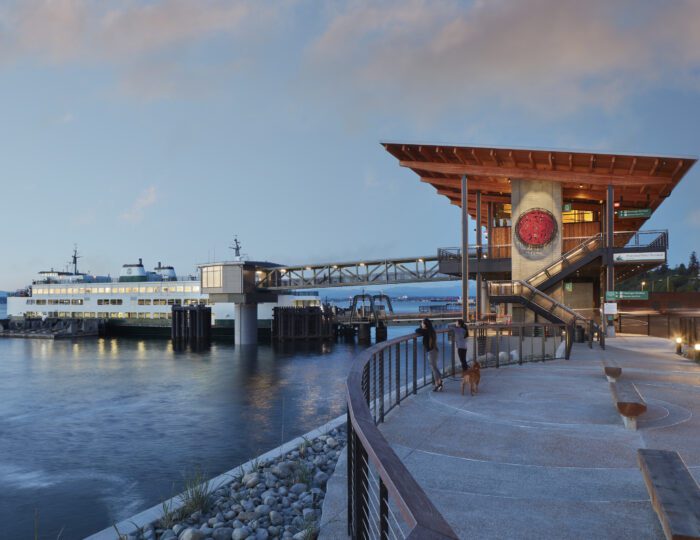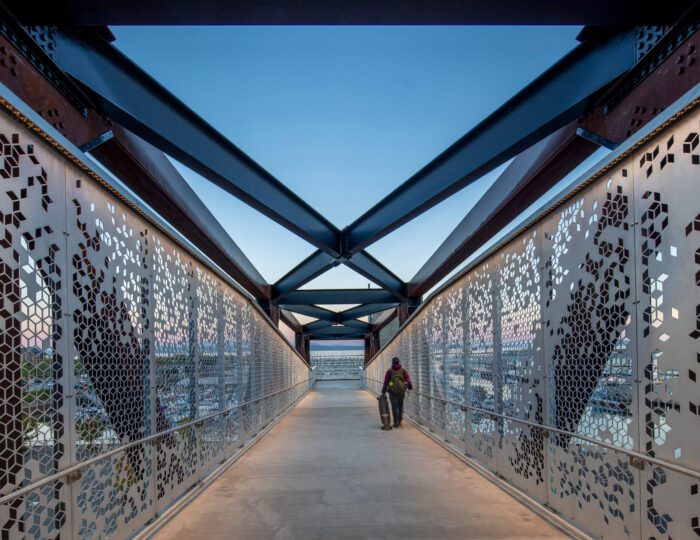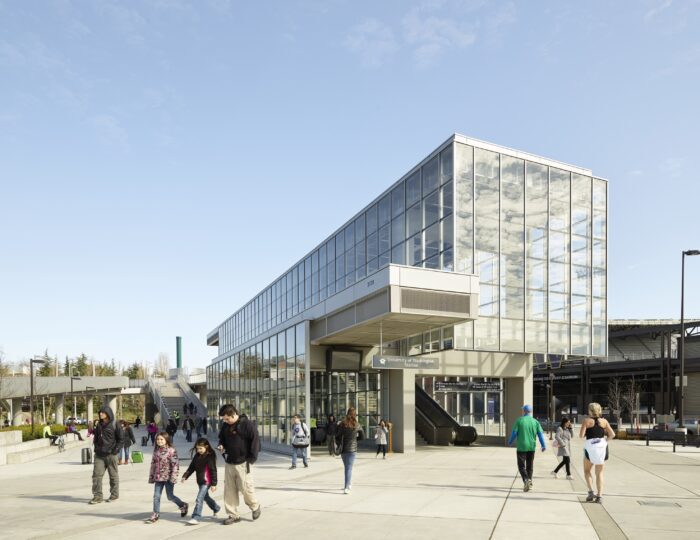On the land bridge, a bermed pathway screens views and sound from the highway, offering a quiet, immersive route across the interchange. Plantings include Douglas iris, Oregon grape, salal, native ferns, and grasses—species chosen for their adaptability, habitat value, and low irrigation needs.
Owner
Washington State Department of Transportation
Prime Consultant: HDR Engineering (Structural and Civil Engineering, Landscape Architecture)
Construction Manager: KBA
Design-Build Contractor: Interwest Construction Inc.
Mechanical Engineering: Tres West Engineers, Inc.
Electrical Engineering: Stantec
Landscape Architecture: Parametrix
Lighting Design: Horton Lees Brogden Lighting Design, Stantec
Traffic Consultant: Parsons Brinckerhoff
Artist: Norie Sato
Project Size
Gross area: 24.00 acres
Project Status
In Progress
Services
Urban Design
Located at a major transportation interchange in Seattle’s Montlake neighborhood, the SR 520 Lid and Land Bridge project weaves new green space, bike and pedestrian connections, and regional transit infrastructure into an urban neighborhood setting. Situated atop a complex interchange, the design integrates HOV lanes, transit stops, and bike trails, while planning for future light rail. It also restores Seattle’s Olmsted parks vision, originally planned in 1903 by the Olmsted Brothers but interrupted by mid-century freeway construction. This project helps reconnect that vision by linking the Washington Park Arboretum and Lake Washington Boulevard through a continuous loop of green spaces.
The project includes pathways, native plantings, and overlooks offering views of the Cascade Range and Lake Washington. It also features stormwater systems that improve water quality. By reclaiming highway space for public use, the project blends infrastructure with ecology, creating a shared civic space that strengthens community connections and promotes transit equity.
Photography: Adam Hunter
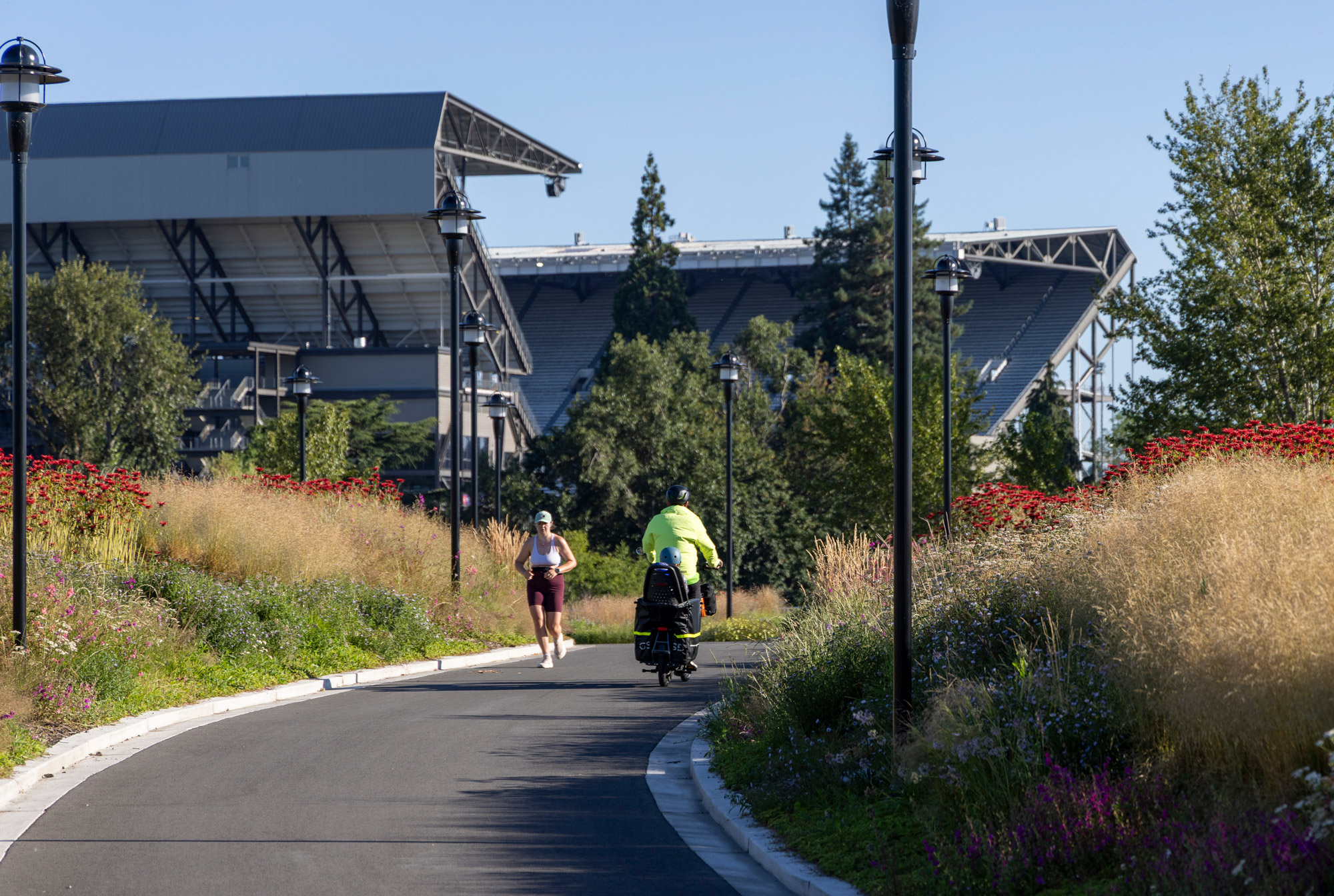
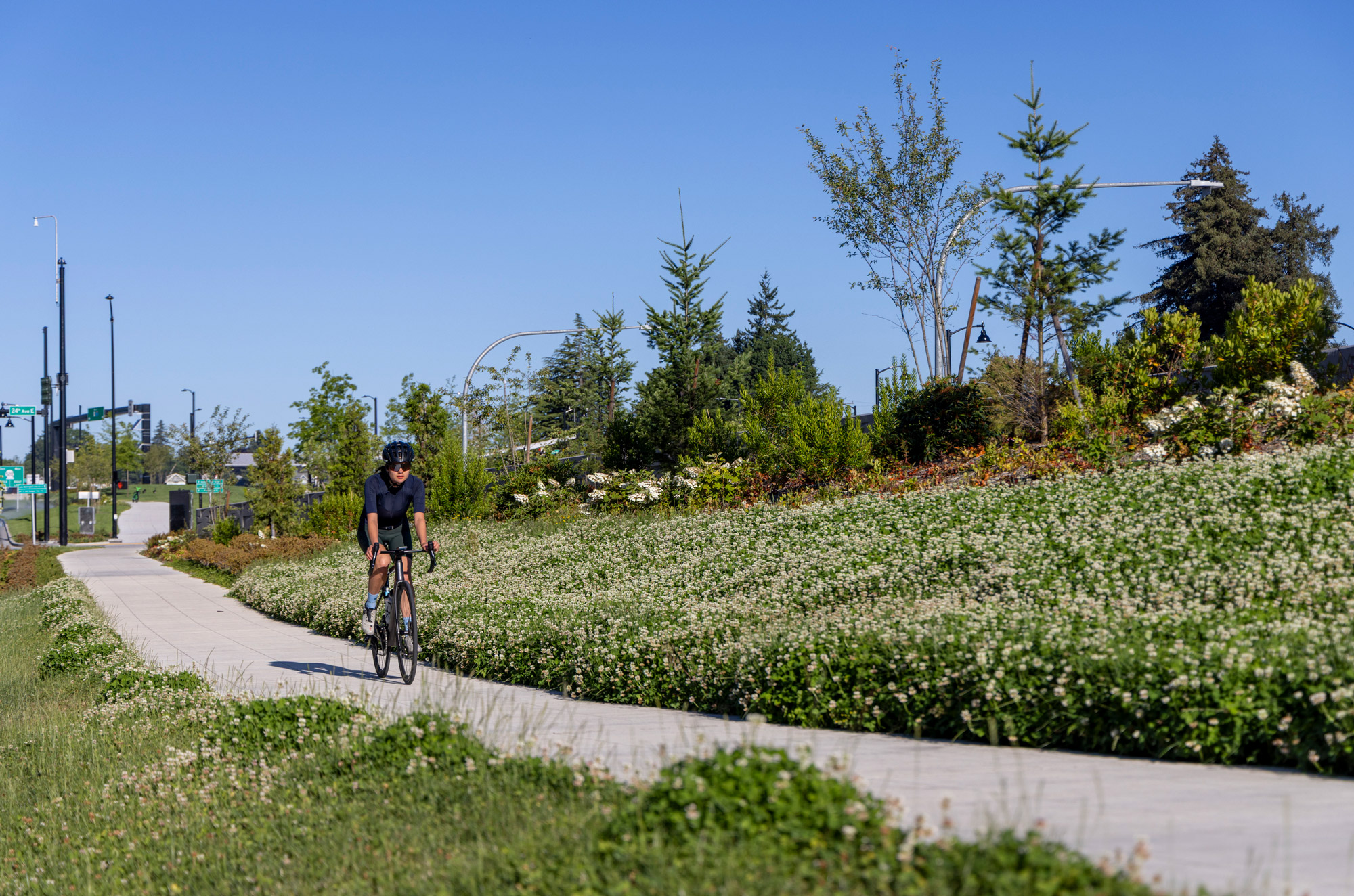
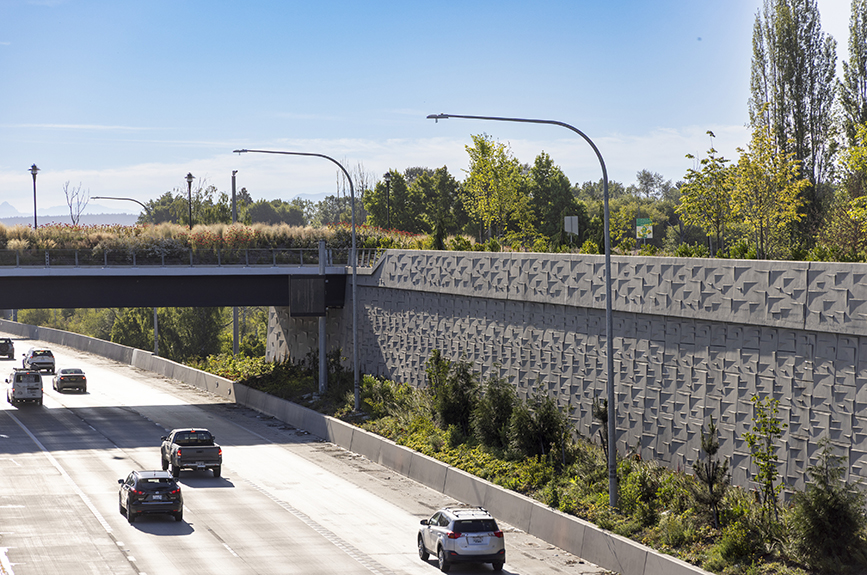
Along the walls of the lid and land bridge facing the highway, a series of integrated ledges are designed to welcome the growth of moss and ferns over time, eventually becoming green walls that will mimic the charm of mossy, weathered concrete walls in Seattle’s Olmsted parks.
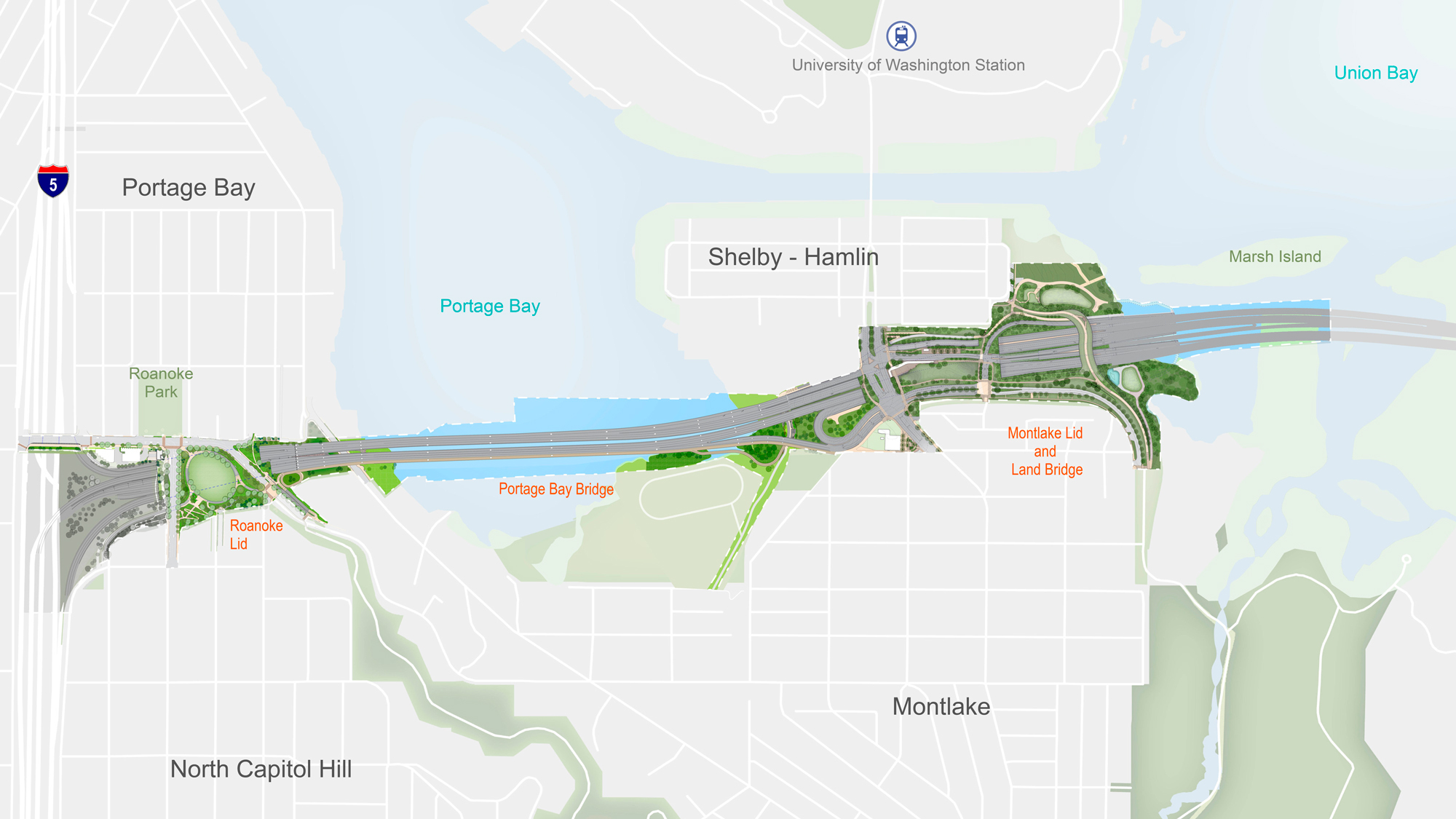
The next phase of the Seattle SR 520 project is under construction and includes the new Portage Bay Bridge and Roanoke Lid. The bridge will include an extension of the SR 520 trail, extending the trail network to Capitol Hill and Eastlake. The lid will be a major new open space, featuring commanding views to Portage Bay, Lake Washington, and the Cascade mountains beyond.

